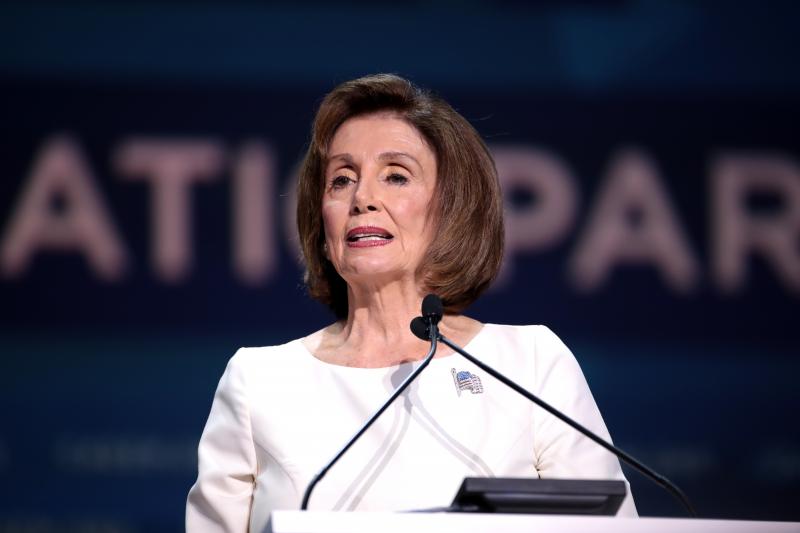
Lawmakers have reached an agreement to fund the government and provide additional Coronavirus relief. While this package is far from perfect and contains several wasteful spending provisions, it rejects the Pelosi/Biden effort for $3 trillion in new spending.
Instead, the COVID relief bill reportedly allocates roughly $325 billion in new taxpayer dollars after spending offsets won by Republicans, which means the final proposal is just 10 percent of total spending that Pelosi and Democrats demanded earlier this year.
Importantly, the package does not include the $1 trillion in state and local bailout money pushed by Democrats that would have subsidized poorly run blue states. Republicans also offset new COVID-19 spending by repurposing unused Paycheck Protection Program (PPP) funds and rescinding over $400 billion in unused funds allocated to the federal reserve by the Coronavirus Aid, Relief, and Economic Security (CARES) Act earlier this year.
Unfortunately, as part of this legislation, Democrats have forced inclusion of hundreds of billions in wasteful spending including a new $300-per-week supplemental unemployment program that will discourage Americans from returning to work and $600 direct payments to individuals that will do nothing to help the economy recover.
While these provisions should be opposed, it is important to note that this wasteful spending could have been much worse.
Democrats will undoubtedly continue to push for new trillion dollar bills next year. President-elect Joe Biden has already said that any Coronavirus package now is a “down payment” for more COVID-19 spending in 2021. House Speaker Nancy Pelosi (D-Calif.) will also continue pushing the $3 trillion HEROES Act, which contained the $1 trillion state bailout as well as countless other liberal priorities unrelated to the pandemic.
Key highlights of this agreement include:
Additional Unemployment Benefits That Could Prolong the Economic Recovery
The $300-per-week expanded unemployment payments included in the budget agreement could prolong the economic recovery by creating a disincentive for workers to return to work that unnecessarily drives up unemployment rates. It is important to note that these payments are on top of regular unemployment compensation that displaced workers receive from states.
This $300-per-week expansion is a watered-down version of Pelosi’s $600-per-week unemployment expansion, which created a situation in which 68 percent of Americans got paid more on unemployment than in the workplace. The economic damage caused by this is long-lasting – a recent study conducted by the Heritage Foundation found that the Pelosi expansion will reduce GDP by between $955 billion and $1.49 trillion.
Direct Cash Payments That Go to Americans Regardless of Their Financial Need
Coronavirus aid should be targeted to help families and businesses that need it. New stimulus payments would not do that – they would go to Americans regardless of whether they need money, have a job, or have experienced any direct financial hardships from the pandemic. Incidentally, this proposal is supported by socialist Bernie Sanders, who supports trillions of dollars in middle class tax increases and new spending programs.
The fact is, the economy is already recovering and millions of Americans are back at work. Since an April high of 14.7 percent, the unemployment rate has dropped to 6.7 percent in November. Over 12 million Americans have gained jobs since the April low. In addition, personal savings rates are extremely high – Americans saved an average of almost 20 percent of their income between April and October, more than three times the 6 percent average savings rate over the past two decades.
Given this improving economic situation, any aid should be narrowly tailored to helping those that need it most and toward addressing the underlying problems of the economy.
No State and Local Bailout
Fortunately, the budget agreement does not include Democrat proposals for hundreds of billions to a trillion dollars in state and local aid. This new spending is entirely unnecessary and Republicans should be applauded for rejecting this proposal.
While some states have seen their revenues drop, others have seen revenue increase. In all, state collections declined just 4.4 percent through September compared to the first nine months of 2019, according to the Tax Foundation.
Congress has already provided aid to states, including approximately $360 billion that directly went to state and local governments to help them response to COVID-19. This is on top of the $500 billion in short-term loans the Federal Reserve has made available to state and local governments, of which only $1.7 billion has been used.
In fact, according to the Heritage Foundation, “Congress has already authorized federal aid to state and local governments equal to 17 times their 2020 revenue losses and two times their expected 2020 and 2021 combined losses.”
Moving forward, lawmakers need to continue holding the line against the Pelosi-Biden agenda of trillions in wasteful new spending. The COVID-19 pandemic should not be an excuse for the left to enact vast new spending programs that will permanently expand the size and scope of government.

